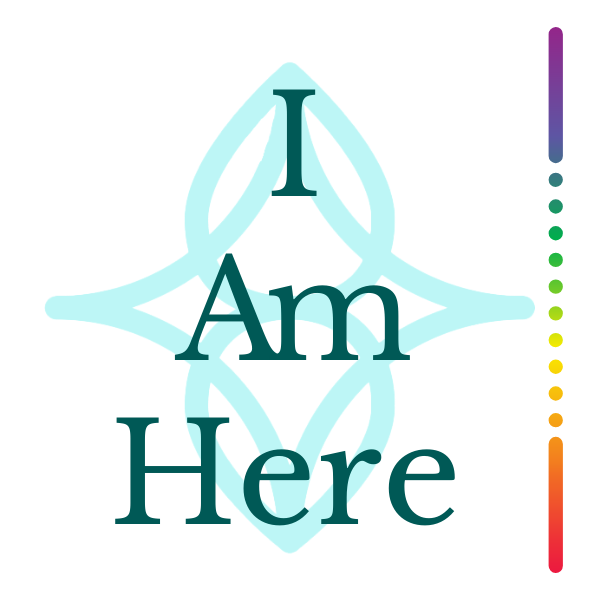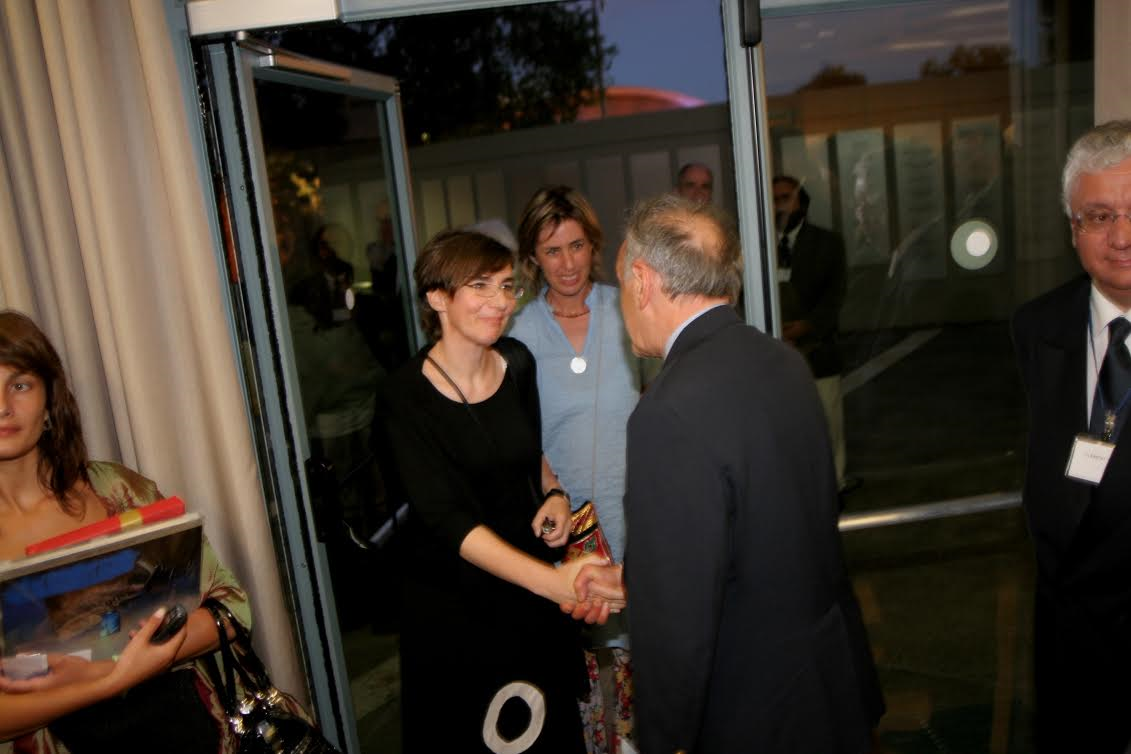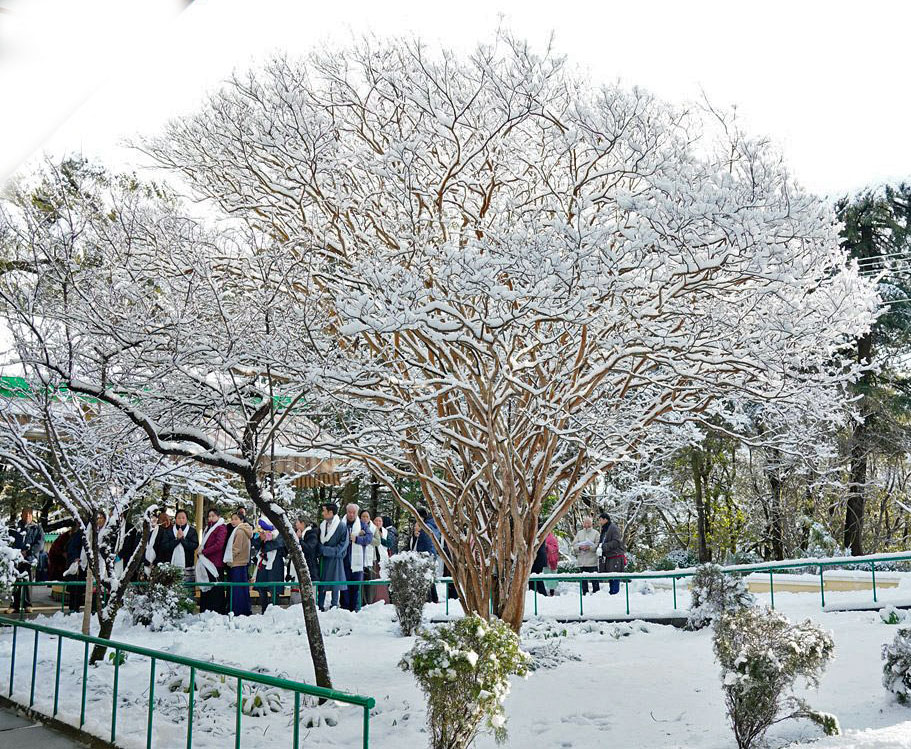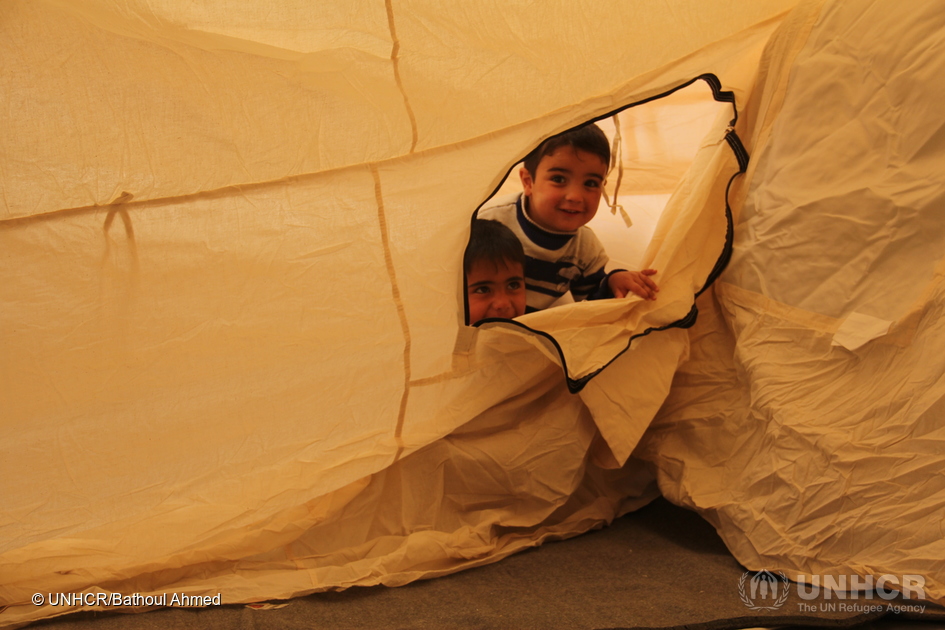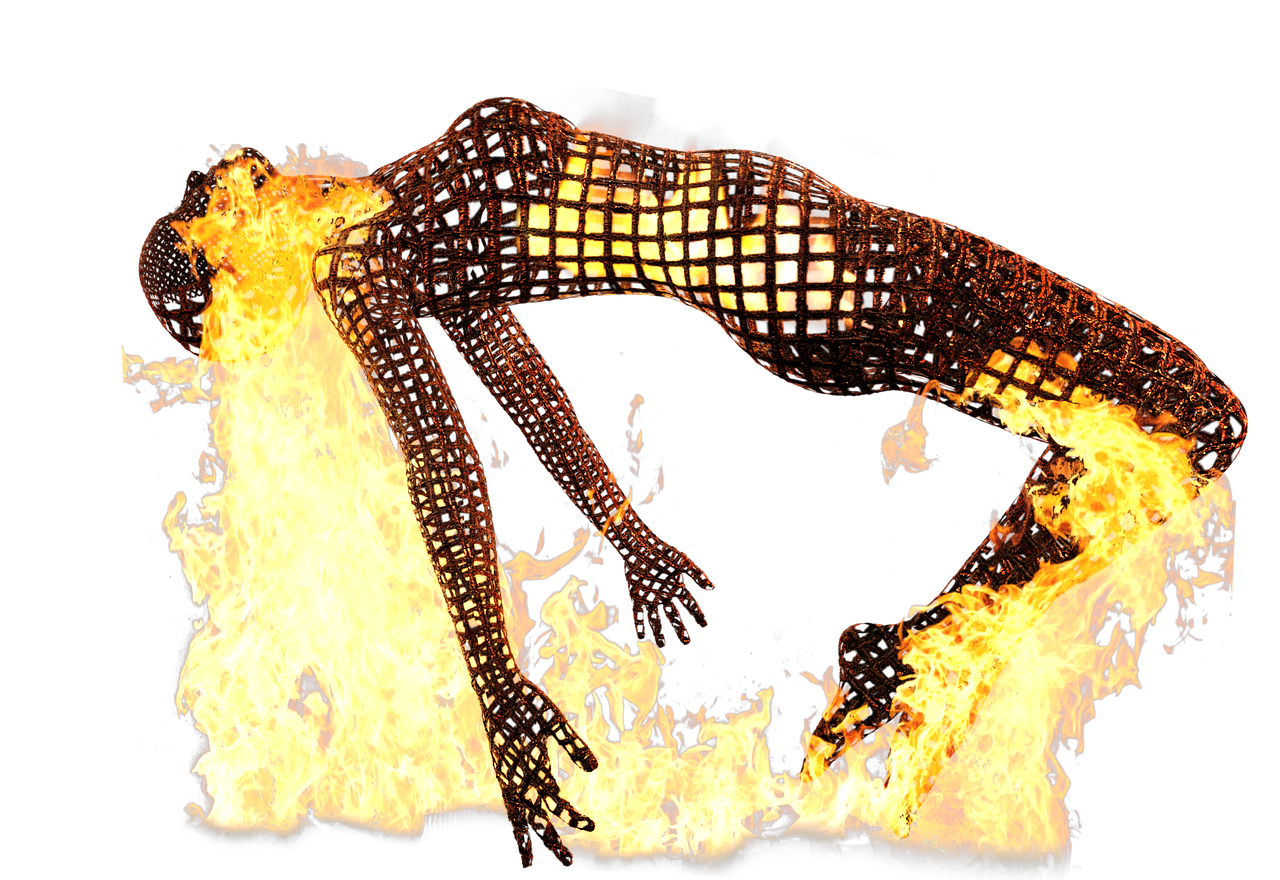“Human suffering anywhere concerns men and women everywhere.”
― Elie Wiesel, Night
Spiritual teachers come in many different forms and often they would not call themselves a spiritual teacher at all. They can be here as rock stars, outrageous comedians, factory workers and random old ladies on park benches.
Yet these awakened ones speak from a freedom of concern that is only found out of that existential core which is behind time and space, outside of the great illusion of it all, independent of change, and beyond personal survival.
They speak from this dimension where we can’t be defined as separate, with a resonance of unconditional care. They don’t abandon the kingdom of Maya, yet Maya is no longer their master. They are in the world, but not of it. They are free, and yet they live on, and just their living on is of service to the whole.
Resting now in peace, Elie Wiesel was such a teacher. Feelings of unspeakable gratitude for his life arise through each pore of self, in these days of his passing.
Melodies of a Master
“There are victories of the soul and spirit. Sometimes, even if you lose, you win. ”
― Elie Wiesel
My first impulse to visit Israel as a 19 year-old came from the gut. The incomprehensibility of the holocaust and the living scream from the gut of the social formulas of postgraduate, left-wing trendy, Thatcherite Britain was like a motor driving me towards Jerusalem. I bought an old van, put a futon in the back, and began driving, via Soviet occupied Auschwitz Birkenau, and on through Yugoslavia, Greece, Haifa to Jerusalem.
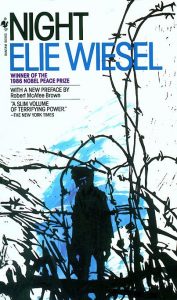 Months earlier, finding myself in the strange, celestial gardens of the holocaust museum Yad Vashem, a book came to my hands: Night, by Elie Wiesel. I locked myself up in the attic apartment near the train-lines in the Baka neighbourhood of Jerusalem, and opened the cover, opening the dimension of the holocaust, told with palpable clarity through the eyes of a 13 year old boy, naked, unembellished.
Months earlier, finding myself in the strange, celestial gardens of the holocaust museum Yad Vashem, a book came to my hands: Night, by Elie Wiesel. I locked myself up in the attic apartment near the train-lines in the Baka neighbourhood of Jerusalem, and opened the cover, opening the dimension of the holocaust, told with palpable clarity through the eyes of a 13 year old boy, naked, unembellished.
The movement through this door was like following the sense of truth opened by a knife slashing the very fabric of maya-land: the dream-like, deeply unsafe veneer of social etiquette and personal survival I had left in England. Out of personal trauma, or a heightened sense of mortality or the danger of collective man, each word of the book sounded at the core of the heart with the resonance of a sad melody repeated in the background of life-times.
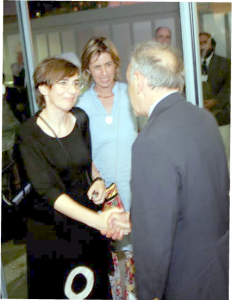 Later on, I would meet this man, Elie Wiesel. He dedicated his life to peace and to the movement beyond national identification and conflict, standing relentless for “human” irrespective of origin or creed. I met him at the Technion, where he was receiving an honorary doctorate. He spoke naturally and was utterly free of the artifice of status, personal importance, or politics. He looked us in the eyes as if we were his siblings. Piercing to the core of That which is one, behind space and time. I asked him if he had a message for Technion students (this was my task there). “Study, study, study,” he said. I looked at him, and he looked back. There was a vast and pure emptiness in meeting between us. Then he said, with a deeper voice and even greater authority: “Celebrate Life”.
Later on, I would meet this man, Elie Wiesel. He dedicated his life to peace and to the movement beyond national identification and conflict, standing relentless for “human” irrespective of origin or creed. I met him at the Technion, where he was receiving an honorary doctorate. He spoke naturally and was utterly free of the artifice of status, personal importance, or politics. He looked us in the eyes as if we were his siblings. Piercing to the core of That which is one, behind space and time. I asked him if he had a message for Technion students (this was my task there). “Study, study, study,” he said. I looked at him, and he looked back. There was a vast and pure emptiness in meeting between us. Then he said, with a deeper voice and even greater authority: “Celebrate Life”.
This message: Celebrate life, became a beacon, a flag and a guide in the years to come as I continued living here, in Israel. It is the tent-peg of our human purpose. It is the way to happiness, service and peace. I took shelter in his words.
Today, on hearing of the passing of this pure soul, I feel gratitude. Gratitude that he is finally out of here, in peace, at peace, as peace. Gratitude that he lived, and continued living, beyond all parameters of personal survival. Gratitude for his fundamental message, and a deep responsibility to carry this message forward as humanity continues to unfold its own damaged gut, through the horrors that are still appearing among us, and haunt the road ahead.
“The weight of a book is the weight of its silence, not the weight of its words. What separates one word from the other is to me a mystery as great as what separates one molecule from the other in science, or what separates one planet from the other”.
Biography from The Elie Wiesel Foundation for Humanity
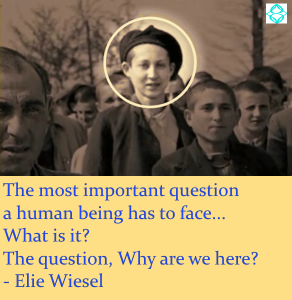 Elie Wiesel was born in 1928 in Sighet, Transylvania, which is now part of Romania. He was fifteen years old when he and his family were deported by the Nazis to Auschwitz. His mother and younger sister perished, his two older sisters survived. Elie and his father were later transported to Buchenwald, where his father died shortly before the camp was liberated in April 1945.
Elie Wiesel was born in 1928 in Sighet, Transylvania, which is now part of Romania. He was fifteen years old when he and his family were deported by the Nazis to Auschwitz. His mother and younger sister perished, his two older sisters survived. Elie and his father were later transported to Buchenwald, where his father died shortly before the camp was liberated in April 1945.
After the war, Elie Wiesel studied in Paris and later became a journalist. During an interview with the distinguished French writer, Francois Mauriac, he was persuaded to write about his experiences in the death camps. The result was his internationally acclaimed memoir, Night (La Nuit), which has since been translated into more than thirty languages.
In 1978, President Jimmy Carter appointed Elie Wiesel as Chairman of the President’s Commission on the Holocaust. In 1980, he became the Founding Chairman of the United States Holocaust Memorial Council. He is President of The Elie Wiesel Foundation for Humanity, an organization he and his wife created to fight indifference, intolerance and injustice. Elie Wiesel has received more than 100 honorary degrees from institutions of higher learning.
A devoted supporter of Israel, Elie Wiesel has also defended the cause of Soviet Jews, Nicaragua’s Miskito Indians, Argentina’s Desaparecidos, Cambodian refugees, the Kurds, victims of famine and genocide in Africa, of apartheid in South Africa, and victims of war in the former Yugoslavia. For more than fifteen years, Elie and his wife Marion have been especially devoted to the cause of Ethiopian-born Israeli youth through the Foundation’s Beit Tzipora Centers for Study and Enrichment.
Teaching has always been central to Elie Wiesel’s work. Since 1976, he has been the Andrew W. Mellon Professor in the Humanities at Boston University, where he also holds the title of University Professor. He is a member of the Faculty in the Department of Religion as well as the Department of Philosophy. Previously, he served as Distinguished Professor of Judaic Studies at the City University of New York (1972-76) and the first Henry Luce Visiting Scholar in Humanities and Social Thought at Yale University (1982-83).
Elie Wiesel is the author of more than sixty books of fiction and non-fiction, including A Beggar in Jerusalem (Prix Médicis winner), The Testament (Prix Livre Inter winner), The Fifth Son (winner of the Grand Prize in Literature from the City of Paris), two volumes of his memoirs, All Rivers Run to the Sea and And the Sea is Never Full, and most recently The Sonderberg Case.
For his literary and human rights activities, he has received numerous awards including the Presidential Medal of Freedom, the U.S. Congressional Gold Medal, the National Humanities Medal, the Medal of Liberty, and the rank of Grand-Croix in the French Legion of Honor. In 1986, Elie Wiesel won the Nobel Prize for Peace, and soon after, Marion and Elie Wiesel established The Elie Wiesel Foundation for Humanity.
“I pray to the God within me that He will give me the strength to ask Him the right questions.”
― Elie Wiesel, Night
